Brick mailboxes are easily a neighborhood head-turner and can come in a range of creative designs.
Despite their visual appeal, a common concern arises: are brick mailboxes illegal? That’s a fair question, given their potential to cause economic and physical harm in the event of a collision.
In this quick post, we take a close look at what the law says about mailboxes, with a focus on brick mailboxes. If you’re considering installing one of these beauties, we recommend reading this blog first to understand the legal considerations and potential implications.
What Is the Law About Brick Mailboxes?

While sturdy mailbox posts are desirable, the US Postal Service (USPS) specifically states that they should bend or break away in the event of a collision.
Why is that?
A breakaway design ensures safety by minimizing the risk of severe damage or injury during accidents.
On the flip side, a post made of unyielding material, as with a concrete, heavy steel, or brick mailbox, can turn hazardous if drivers collide with them. The Department of Transport (DOT) describes this as running into a “deadly fixed object,” and you can be held liable for injuries or damages caused by the collision.
Ideally, an aluminum or steel mailbox post should have a 2-inch diameter, while wooden options are no more than 4 inches high by 4 inches wide.
When it comes to placement, mailbox supports should be around 41 to 45 inches away from the road and about 6 to 8 inches back from the curb.
Despite the USPS guidelines, different states have specific ordinances and regulations regarding mailboxes and posts, with some banning brick, railroad ties, concrete, and blocks, among other materials.
For example, brick mailboxes are not allowed in many states, including: (you must contact your local post master for up to date information on the latest regulations)
- Illinois
- Kentucky
- Texas
- Florida
- Montana
- North Carolina
- Georgia
Why Brick Mailboxes Are Considered Illegal in Some Places
Safety concerns are why brick and other rock-solid mailbox post designs are outlawed in many municipalities. They can be a safety hazard for drivers who accidentally bump into these structures by the roadside.
In many communities, the Homeowners Association (HOA) wields significant influence over the neighborhood’s aesthetics, and mailboxes are no exception.
HOA rules for a neighborhood might include specific guidelines regarding mailbox materials, colors, or even designs. Some HOAs favor uniformity, ensuring a cohesive look throughout the neighborhood, while others may allow a bit more creative freedom.
Before choosing your preferred mailbox, it’s super important to check in with the HOA. Failure to comply with their rules might not only lead to a clash with the neighbors but could also result in requests for costly modifications.
In a nutshell, understanding the legality of brick mailboxes involves digging into local rules and respecting what the neighborhood’s HOA has laid down.
No doubt, appealing to your personal taste and style is key to enhancing your home’s curb appeal. Yet, it’s just as crucial to consider communal harmony. This ensures your mailbox suits your preferences and is in sync with your community’s legal requirements.
Building Permits for Brick Mailboxes
Are brick mailboxes illegal if you get a building permit before erecting them?
Here’s the deal: many municipalities require a building permit to build a brick mailbox.
But there’s a catch.
Even if you apply for one, chances are slim to none that you’ll get a permit to erect a brick mailbox in an area that frowns upon rock-solid mailbox supports.
Another option is to explore land use covenants. Unfortunately, the process of obtaining one can be complex and tiring.
Legal Considerations
Now, let’s talk about potential lawsuits involving brick mailboxes. There are mainly two scenarios where legal trouble might come knocking:
- Violation of local ordinances: If your mailbox violates city or local ordinances regarding size, materials, or distance from the road, you could find yourself in legal trouble.
- Negligence in case of accidents: The other legal pitfall involves someone driving into your brick mailbox and suffering both economic and physical damage. If the court determines you were negligent in having a brick and concrete mailbox too close to the road, you might be held responsible.
If your mailbox stays clear of local ordinance violations, the chances of legal woes are pretty slim.
Brick Mailbox Alternatives

If you’ve got your heart set on upgrading your curb appeal with an elegant mailbox but find yourself in a legal gray area or a neighborhood where real brick and stone mailboxes are outlawed, don’t worry. You’ve got other options, and they’re generally on the safer side, too.
Faux Brick Mailbox
Made from lightweight materials like molded polyurethane, faux brick mailboxes are less likely to cause harm in a collision. Plus, they’re a breeze to install (even if you’re not a pro bricklayer), making them a convenient and safer choice for homeowners.
Column Mailbox
You can spruce up your curb appeal and add the “wow” factor with a column-mounted mailbox ― all without stressing over breaking any rules.
Crafted from top-notch materials like stainless steel and die-cast aluminum, these mailboxes keep your letters safe and sound, with less risk of turning into a wrecking ball in case of a little fender bender.
Plastic Mailbox
With a lightweight plastic mailbox, you not only have peace of mind in the case of collisions, but it’s also easy to maintain. The weather-resistant quality of plastic makes it an effortless choice for durability, ensuring your mailbox stands tall against the elements without breaking a sweat.
Final Thoughts
Are brick mailboxes illegal? The answer depends on where you live. In some states, these charming structures get a green light, while they’re deemed a traffic hazard and outright outlawed in others.
Before building your brick mailbox, it’s wise to check your local regulations. The last thing you want is a hassle with your mailbox, leading to legal headaches.
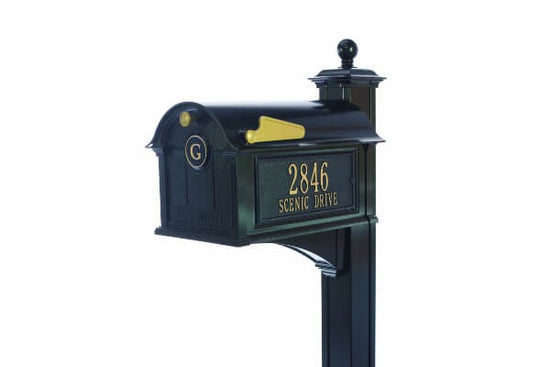
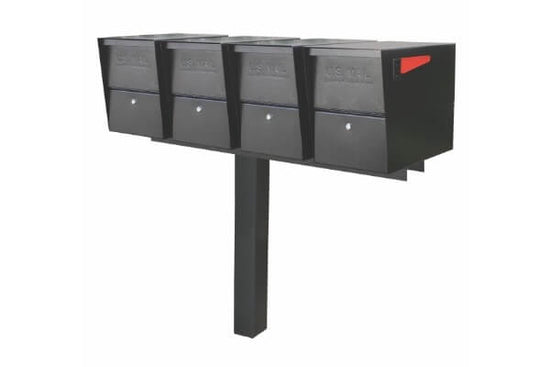
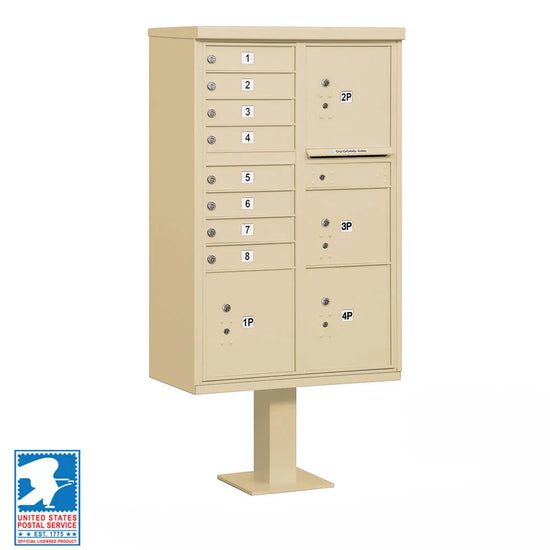
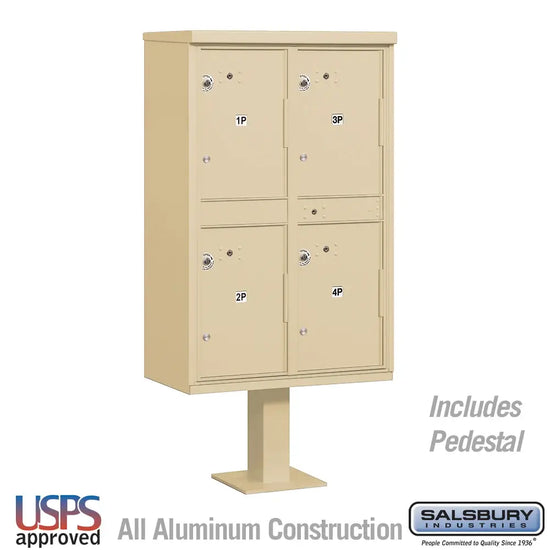
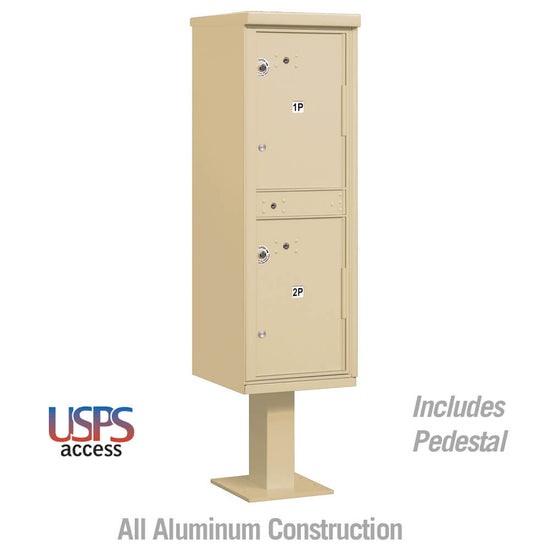
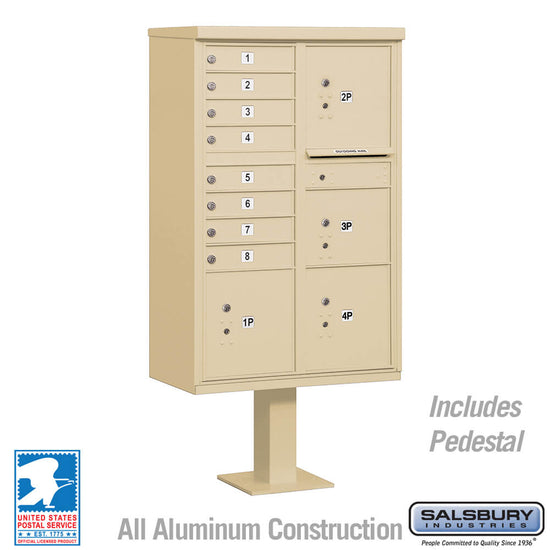





1 comment
Biatch
That’s bs that I can’t protect from fing aholes who ran over my mailbox. 500 down the toilet
Fuckers hope they broke their radiator.